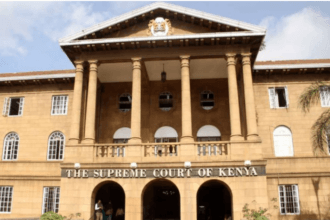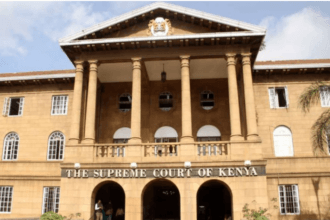
In a concerted effort to drive development across the continent, Kenya, along with Togo and the African Union (AU), is advocating for the implementation of the Nairobi Declaration. This agreement aims to enhance climate resilience and sustainable growth in African nations.
During a pivotal side event at COP29, representatives from African states and international allies gathered to review the progress made on the Nairobi Declaration, first established at last year’s climate summit held in Nairobi.
The meeting was chaired by Kenya’s Prime Cabinet Secretary Musalia Mudavadi, who led the Kenyan delegation. He was joined by Togo’s President Faure Essozimna Gnassingbé and Josepha Sako, the chair of the AU’s Environment and Agriculture Committee. The leaders emphasized the need for the global community to prioritize the Nairobi Declaration’s implementation, highlighting that substantial funding is essential to support climate resilience projects throughout Africa. Mudavadi stressed
, “We must urgently mobilize climate finance from both public and private sectors, striking a balance between mitigation and adaptation for economic recovery and planet safety.”
Mudavadi further pointed out that replenishing the African Development Fund (ADF) and the International Development Association (IDA) is critical for financing climate-resilient infrastructure, increasing energy access, and fostering sustainable development across the continent.
“A robust ADF and IDA replenishment will ensure energy access for over 300 million Africans, facilitating climate-smart development. We need to reform the global financial architecture to include debt-for-climate swaps, climate-specific funding, and revised lending terms that will help Africa respond effectively to climate emergencies
This call to action found support from Environment Cabinet Secretary Adan Duale, who shared plans for Nairobi to host an African climate change coordination office.
Duale mentioned that under President William Ruto’s leadership, the 2023 Africa Climate Summit provided an excellent platform for African nations to unite around their climate priorities, culminating in the Nairobi Leaders Declaration on climate change.

“I am pleased to announce that Kenya is working closely with the AU Commission to urgently bring the ACS implementation roadmap to life. We have secured office space within the Ministry of Environment, Climate Change, and Forestry to establish a secretariat,”
In addition, the African Union Commission is developing governance structures for the ACS secretariat, alongside a communication strategy and a joint resource mobilization plan.
The meeting also proposed that the Africa Climate Summit (ACS) be held every two years, with Nairobi earmarked as the host city for the 2025 event.
Josefa Sako, chair of the AU’s Environment and Agriculture Committee, indicated that the African Commission has set up a climate finance unit as part of the Green Recovery Action Plan (GRAP). With the collaboration of both public and private financial organizations, they are gearing up for the first phase of grant implementation.
As African nations rally together for the Nairobi Declaration, the call for substantial climate financing and international cooperation becomes ever more urgent. The initiative serves not only as a commitment to sustainable development but also as a testament to Africa’s resilience in facing the growing climate crisis.




